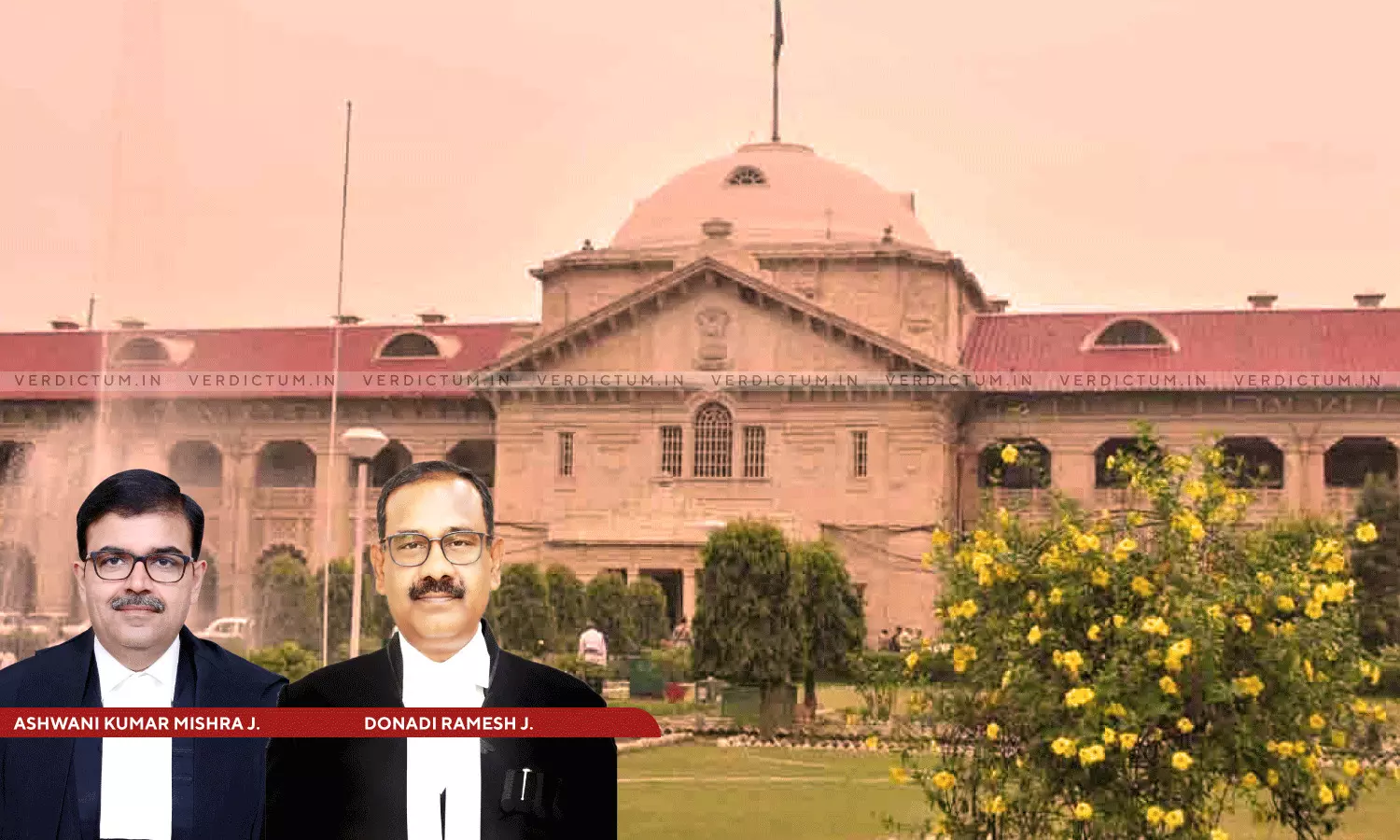
Supreme Court: Justice Ashwani Kumar Mishra and Justice Donadi Ramesh
Allahabad High Court Dismisses Petitions Challenging Aligarh Muslim University’s First Woman Vice-Chancellor Naima Khatoon's Appointment
 |
|The Petitions challenged Professor Khatoon's appointment, primarily arguing that her husband, Professor Mohd. Gulrez, who was acting as Vice-Chancellor.
The Allahabad High Court has dismissed a Writ Petition challenging the appointment of Professor Naima Khatoon, the first woman appointed as the Vice-Chancellor of Aligarh Muslim University.
The Petitions challenged Professor Khatoon's appointment, primarily arguing that her husband, Professor Mohd. Gulrez, who was acting as Vice-Chancellor, presided over the meetings where his wife was recommended for the position. Petitioners asserted this constituted bias and manipulation of the selection process. The Court, however, held that the Visitor's (President of India) discretion in appointing Professor Khatoon from a panel of three names recommended by the University Court requires no interference.
A Division Bench of Justice Ashwani Kumar Mishra and Justice Donadi Ramesh held, “Since, the quorum of Executive Council is 15 whereas 19 members were present and had participated, therefore, no difficulty would have otherwise arisen if Professor Gulrez Ahmad had abstained and allowed the next man in command as per the statute to preside such proceedings. This course would have obliterated any apprehension of bias in the process of recommendation. Chairing and participation of Professor Gulrez in the process of recommendation is thus held improper.”
Advocate Kunal Shah appeared for the Petitioner, while Advocate Dhananjay Awasthi represented the Respondents.
Brief Facts
The appointment was challenged, arguing that the involvement of Professor Mohd. Gulrez, the acting Vice-Chancellor and Professor Khatoon's husband, in the selection process compromised its fairness. It was also submitted that there were concerns about manipulation of proceedings, irregularities in voting, and conflicts of interest, claiming these issues tainted the legitimacy of Professor Khatoon's appointment.
Court’s Reasoning
The High Court noted, “Upon commencement of meeting of the Executive Council and University Court an objection was raised by several members that Professor Gulrez Ahmad ought not to preside the meetings since his wife is a candidate. This objection has been rejected by Professor Gulrez Ahmad. According to petitioners, Professor Gulrez Ahmad became a judge in his own cause and contravened the principles of natural justice.”
“As per the appointment procedure specified in the Act and Statutes Visitor is not bound to appoint one of the persons recommended by the University Court as the Vice-Chancellor of the University. The Visitor has the discretion of not approving any of the persons recommended by the Court and may call for fresh recommendations. The discretion of the Visitor in appointing the Vice-Chancellor is not limited or conditioned. The act ultimately reposes trust in the Visitor for making appointment of the Vice-Chancellor,” the Bench remarked.
The Court explained, “The scheme of appointment under the Act confers limited authority upon the Executive Council and the University Court. Its role is limited to recommending names of three persons by the University Court out of five names suggested by the Executive Council. The Executive Council and the University Court are multi member bodies and their decisions are by majority on the strength of votes cast by them.”
The Court also clarified, “The Visitor under the Statute is not obligated to accept the recommendation of the Executive Council and the University Court and has the authority not to accept it and call for fresh recommendation. Presumption in law would be that at the level of the Visitor the proceedings and records would be examined. At the crucial stage of selection before the Visitor neither the proceedings are shown to have any shortcoming nor any bias is alleged. Consequently, the selection of Vicechancellor by the Visitor cannot be questioned.”
The Bench then directed, “We deem it appropriate, in such circumstances, to issue a directive to the University to resolve, henceforth, not to allow any spouse or close family member to preside and participate any crucial meeting concerning his/her close relative.”
“We have already noticed that qualification of Professor Naima Khatoon to be appointed as the Vice-Chancellor is not in issue. Her ultimate selection is by the Visitor against whom no allegation of bias is made,” the Bench held.
Consequently, the Court ordered, “For the reasons and deliberations held above, we hold that discretion exercised by the Visitor in appointing Professor Naima Khatoon as the first woman Vice-Chancellor of Aligarh Muslim University from a panel of three names recommended by the University Court merits no interference.”
Accordingly, the High Court dismissed the Petition.
Cause Title: Prof. (Dr.) Mujahid Beg v. Union Of India & Ors. (Neutral Citation: 2025:AHC:81949-DB)
Appearance:
Petitioner: Advocates Kunal Shah and Sankalp Narain
Respondents: Advocates Dhananjay Awasthi, Shashank Shekhar Singh, Shyamal Narain, Siddharth Khare, Siddharth Nandan, Syed Imran Ibrahim, Syed Shahnawaz Shah and Vivek Kumar Singh